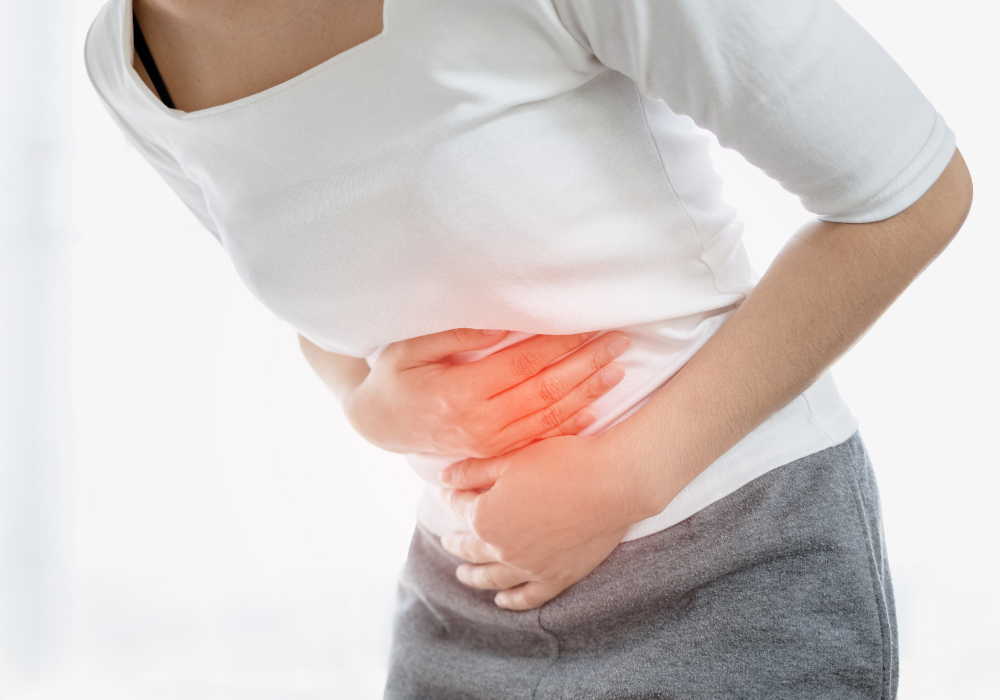A painful feeling in the upper abdomen is the first indication of gastritis. However, the symptoms are wide-ranging. We have summarised them and give tips on what you can do about it.
What exactly is gastritis?
Gastritis is an inflammation of the stomach lining that can occur when the stomach wall is damaged. Too much stomach acid can also be a reason for the disease, as it damages mucosal cells. Gastritis occurs either acutely or chronically - a distinction is made here between types A, B or C and various special forms.
How does gastritis manifest itself?
An inflamed stomach lining can have different symptoms. In acute gastritis, they come on suddenly. The following conditions can indicate a disease:
- Loss of appetite
- Feeling of fullness
- Nausea
- Heartburn
- Vomiting
- Pain in the upper abdomen
In chronic gastritis, the symptoms develop gradually over a long period of time - but often they go unnoticed. Typical of type A would be increased fatigue as well as a lack of vitamin B12. The majority of gastritis diseases are of type B, which is usually caused by an infection with the bacterium Helicobacter pylori. This can lead to stomach or duodenal ulcers, as well as stomach cancer. Type C gastritis is characterised by non-specific abdominal pain and is often mistaken for irritable stomach. The cause is often an increased intake of painkillers, such as ibuprofen or diclofenac, or alcohol.
How do I know I have gastritis?
A gastroscopy is undoubtedly the most conclusive examination method for determining gastritis. Talk to your doctor if you suspect that you have gastritis.
What can help with gastritis?
Since stress is often the trigger for gastritis, it should be minimised as a first step. In addition, coffee, alcohol and nicotine should be avoided. Subsequently, our pharmacists recommend an adapted diet, teas and stress-reducing food supplements. Here, the supplementation of B vitamins is suitable.
Home remedies include external heat treatment with a hot water bottle or cherry stone pillow.
If you are prescribed medication by a doctor, be aware that side effects can occur. However, nutritional countermeasures can be taken. Depending on the effect, different medications are used, both acid binders and acid blockers (e.g. Pantoprazole: discover natural alternatives).
What should you eat if you have gastritis?
In order to eat as gently as possible when suffering from gastritis, one should resort to an alkaline diet. This is free of acid-forming foods and helps to reverse gastritis. We also recommend drinking alkaline tea to do your stomach some good.
Do you already know our story about acid-base balance?
Additionally, alkaline preparations and alkaline powders help. If you have any further questions about gastritis, please feel free to contact or visit our pharmacists at Saint Charles Apotheke Vienna or Berlin. We will be happy to advise you.







